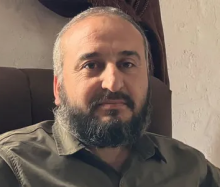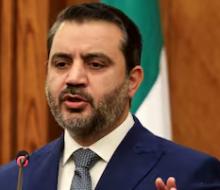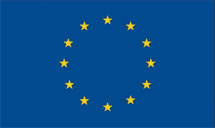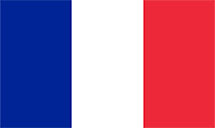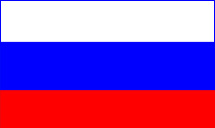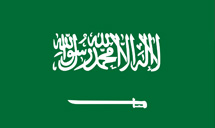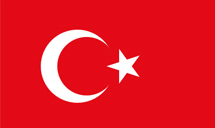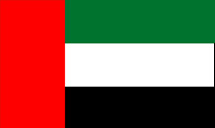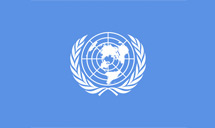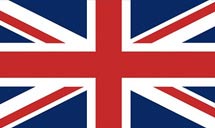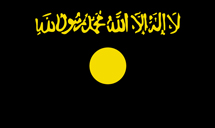Executive Summary:
Al-Nusra Front is an internationally sanctioned terrorist group, one of the strongest insurgent groups in Syria, and a formerly open al-Qaeda affiliate that seeks to replace the Assad regime in Syria with an Islamic state. Operating as part of the Hayat Tahrir al-Sham (HTS) coalition since January 2017, al-Nusra Front stands accused of serving as a base for global al-Qaeda operations. In the years since its formation in 2011, the Front has gradually amassed and maintained control of territory throughout Syria. As of late 2019, the Front controlled or administered all of the Syrian opposition-held parts of Idlib, north Hama, and west Aleppo. By early 2020, Idlib was the only Syrian province still under rebel control.
Originally al-Qaeda’s official affiliate in Syria, al-Nusra Front has since claimed to have dissociated entirely from the international terrorist organization, despite the Front’s long and proven history of serving as its loyal affiliate. On July 28, 2016, al-Qaeda released an audio statement giving the Front formal permission to break ties if the link was “conflicting with [the Front’s] unity and working as one body.” Al-Nusra Front leader Abu Muhammad al-Golani declared a formal split from al-Qaeda after thanking “our brothers, the commanders of al-Qa’eda...” and announcing the group’s name change from Jabhat al-Nusra, Arabic for “the Victory Front”, to Jabhat Fateh al-Sham, “the Conquest of the Levant Front.” Analysts had long surmised that a break from al-Qaeda, however artificial, could enable al-Nusra Front to attract more funding from Gulf states like Qatar, consolidate local support, and present itself as a legitimate insurgent group in Syria.
To these ends, al-Nusra Front announced on January 28, 2017, that it would dissolve and be subsumed under a new, larger Syrian Islamist group, Hayat Tahrir al-Sham (“Assembly for the Liberation of the Levant” or HTS). HTS’s initial leader was Hashim al-Sheikh, the former leader of fellow Islamist faction Ahrar al-Sham. While al-Nusra Front continues to operate under the HTS name, Sheikh resigned from his post on October 1, 2017, and the group has suffered dozens of defections. Analysts estimated that by September 2017 HTS had reverted back to its core of about 10,000 fighters, most of them belonging to al-Nusra Front. By the end of 2018, HTS had an estimated 15,000 to 20,000 fighters. By the end of 2021, al-Nusra Front had an estimated 5,000 to 10,000 fighters.
For years before the announced split, however, Golani had reaffirmed his group’s allegiance to al-Qaeda. Al-Nusra Front’s founder, the late ISIS leader Abu Bakr al-Baghdadi, claimed he dispatched Golani and others—then al-Qaeda in Iraq (AQI) fighters—into Syria in 2011 in order to exploit the power vacuum stemming from the country's civil war. The United States confirms this claim, maintaining that al-Nusra Front was formed by AQI to “hijack the struggles of the legitimate Syrian opposition to further its own extremist ideology.” In April 2013, after Baghdadi unilaterally claimed to subsume al-Nusra Front into AQI, now known as ISIS, Golani broke ties with Baghdadi and reaffirmed his allegiance to al-Qaeda central.
Despite the group’s origins in Iraq and historical deference to al-Qaeda, al-Nusra Front has branded itself as a native rebel group with foreign experience. In Syria, the group continues to profess its goal of toppling the Assad regime and establishing an Islamic state in its place, albeit incrementally. Trying to consolidate local support, al-Nusra Front has adopted military and outreach strategies from al-Qaeda-linked jihadist Abu Musab al-Suri: participating in numerous Syrian-based coalitions and collaborating with other Islamist, and occasionally secular, rebel groups to carry out joint attacks against Assad forces. Al-Nusra Front, and then HTS, also operated a civil administrative wing, called the “Public Services Administration,” which provided basic administrative needs and security and governed several rebel-controlled towns under various forms of Islamic law. On November 2, 2017, HTS announced the formation of the “Salvation Government,” a civilian-run administrative and political body in Idlib chaired by Mohammad al-Sheikh. HTS reportedly handed over control of its Public Services Administration to the Salvation Government. While the two maintain they are separate from each other, HTS has described its relationship to the Salvation Government as a partnership. HTS has subsequently sought to moderate its image in a bid to convince locals and international actors it can be a responsible partner in governance. To present itself as a legitimate alternative to the Syrian government, HTS has sought to coopt Syrian tribal leaders to build cooperative relationships against the Syrian government. HTS has also reframed al-Nusra Front’s violent conflict with ISIS as legitimate counterterrorism operations.
Although the group has succeeded in embedding itself in the Syrian insurgency, al-Nusra Front remains committed to employing terrorist tactics in order to secure an Islamic state. Since its founding, al-Nusra Front has conducted formal military campaigns, assassinations, hostage takings, and ‘lone wolf’ operations, including suicide bombings. By June 2013, the Front had claimed responsibility for 57 out of then-70 suicide attacks during Syria’s civil war. The group has since continued to carry out its signature suicide bombings in Syria and expanded its operations into neighboring Lebanon after Hezbollah joined the war in mid-2013.
In Lebanon, al-Nusra Front has sought to stoke sectarian divisions with suicide bombings against civilian centers like Beirut and Hezbollah strongholds like Hermel, along Lebanon’s northeastern border with Syria. Al-Nusra Front also employs arbitrary detention and torture in order to silence its critics and opposition activists. According to a Human Rights Watch report, HTS detained more than 184 people in Idlib in the last three months of 2018. Other human rights organizations accuse HTS of arresting at least 622 people between January 2017 and August 2019. As of early 2022, the United Nations and human rights groups continue to accuse HTS of mass arrests without charge and torture of detainees, charges HTS denies.
Al-Nusra Front attracted the largest contingency of foreign fighters to Syria after ISIS, reportedly consisting of 3,000 to 4,000 foreigners as of late 2018. HTS regularly engaged in violent clashes with other rebel groups in northern Syria and conducted operations to arrest civilian protesters. As of December 2024, there are approximately 30,000 HTS fighters.
HTS continues to align with rebel fighters through the formation of various offensive coalitions. On November 27, 2024, rebel forces advanced into Aleppo and its surrounding villages, launching the largest offensive against the Syrian government in years. The offensive, dubbed Operation Deterrence of Aggression, was launched by a rebel coalition called Military Operations Command, which is primarily led by HTS. The HTS-led rebels were also assisted by HTS-affiliated groups such as the Uzbek group Katibat al Tawhid wal Jihad (KIJ), the Uyghur Ansar al-Tawhid (AaT), the Chechen Ajnad Kavkaz (AK), and the Uyghur Turkistan Islamic Party (TIP). Assad-backed forces and their Russian allies swiftly launched airstrikes on Aleppo and other rebel-held areas. On December 2, Iran-backed militias based in Iraq were deployed to Syria as reinforcements. Among the Iraqi militias are fighters from Kata’ib Hezbollah, Badr Organization, and Harakat Hezbollah al-Nujaba. The rebels quickly seized control of large swathes of land across the western and northwestern provinces of Hama, Idlib, and Aleppo, including critical infrastructure including the airport and military academy of Aleppo.
On December 7, 2024, the HTS-led rebels advanced into Damascus, seizing the capital and effectively putting an end to the Assad family’s 50-year dictatorship. Bashar Assad relinquished the presidency and fled to Russia, where he was granted asylum. In a statement released by the Russian Foreign Affairs Ministry, Assad reportedly left “instructions to transfer power peacefully.” Prime Minister Ghazi al-Jalali also released a statement claiming he would not leave Syria unless it is in a peaceful manner that would ensure “the continued functioning of public institutions and state facilities, promoting security and reassurance for our fellow citizens.” Al-Jalali further stated that the government was ready to cooperate with “any leadership chosen by the Syrian people.” After seizing the capital, HTS freed thousands of individuals detained at the Sednaya military prison on the outskirts of Damascus. Despite their success, HTS did not immediately provide detailed statements on how they intend to govern the country but did release a statement promising “not to settle scores or seek revenge.”
In a December 29, 2024, broadcast interview on what changes the Syrian public can expect in upcoming years, HTS leader Golani warned that Syrians might have to wait a year to see improvements to public services and even longer to participate in free and fair elections. Golani further elaborated that legitimate elections could occur only after a comprehensive population census and the rewriting of the country’s constitution, which could take up to three years. Despite promises of free and fair elections, Golani declared himself president of Syria on January 29, 2025. During a meeting of armed factions in Damascus, Golani abolished the constitution and dissolved Syria’s parliament, army, and security agencies. Accordingly, all rebel groups, along with HTS, would be dissolved and absorbed into state institutions. Golani further announced the formation of a temporary legislative council to help govern the country until a new constitution is enacted. In his first presidential address on January 31, Golani claimed that following his suspension of the country’s constitution, he would issue a “Constitutional Declaration” that would serve as a “legal reference.” He also announced the formation of a committee tasked with preparing the National Dialogue Conference, a discussion platform intended to listen to and aggregate various political viewpoints that will subsequently inform the development of the Constitutional Declaration.
Doctrine:
Al-Nusra Front adheres to a Salafist, jihadist ideology with the professed aim of establishing Islamic governance in all areas under its control. In the group’s January 2012 inaugural video, a masked representative outlined its regional objectives. He introduced al-Nusra Front as “Syrian mujahedeen” who have come “back from various jihad fronts to restore God’s rule on the Earth [Islamic law] and avenge the Syrians’ violated honour and spilled blood.”
Years later, when Golani announced al-Nusra Front’s dissociation from al-Qaeda, he reaffirmed the group’s core objectives, saying that despite separating from al-Qaeda, the group would not be “compromising or sacrificing our solid beliefs or laxity in the necessity of the continuity of the Jihad of Al-Sham [Syria].” Golani reaffirmed that his group sought to use “Islamically legitimate means” to unify jihadists in Syria and the “masses of people in Al-Sham [Syria]” in order to replace the Assad government with one based on sharia (Islamic law). In a February 2021 interview with PBS’s Frontline, Golani described HTS’s “key message” as the people wanted to change a ruler and the ruler wanted to change a people—and changing a ruler is a lot easier than changing a people.
Despite these affirmations, al-Nusra Front has continued to struggle with its identity. On November 27, 2017, Golani ordered the arrests of Sami al-Oraidi, the former head of al-Nusra Front’s Sharia Council; Abu Julaibib al-Ordoni, former Dara’a commander for al-Nusra Front; Abu Khadija al-Ordoni; and Abu Mussaab al-Libi. All four were prominent al-Nusra Front leaders with strong ties to al-Qaeda. Following these arrests, several HTS members resigned and several large factions threatened to break away, prompting Golani to renew negotiations with al-Qaeda that ultimately led nowhere. On December 4, 2017, HTS released Ordoni in a bid to ease tensions within the group. Ordoni immediately renewed his pledge to al-Qaeda upon release.
Following these arrests, several subgroups of devoted al-Qaeda supporters defected from HTS. On December 5, 2017, HTS faction Jaish al-Badia defected, creating a new Telegram channel devoted to al-Qaeda. Jaish al-Malahem followed three weeks later, also indicating support for al-Qaeda in its new Telegram channel, while on February 7, 2018, a new al-Qaeda-supporting group, Jund al Shariah, announced its formation. On February 28, 2018, these three groups, along with three other small militant factions, announced a merger under the name Hurras al-Deen (HaD), or Guardians of the Religion, and declared themselves an unofficial affiliate of al-Qaeda. Oraidi and Ordoni both joined HaD's Shura council and reportedly began talks with al-Qaeda leader Ayman al-Zawahiri to make HaD the official al-Qaeda affiliate in Syria. HaD is explicitly loyal to al-Qaeda and the U.S. government considers it part of al-Qaeda in Syria. HaD views al-Qaeda leader Zawahiri as its “defining authority.” HaD remains at odds with HTS.
While some Syria analysts argue that this chain of events proves that HTS and al-Nusra Front are no longer al-Qaeda affiliates, the U.S. government maintains that the groups are linked. On May 31, 2018, the State Department amended its classification of HTS to include it as “an official alias” of al-Nusra Front, which the State Department maintains is still “an al-Qaeda affiliate.” Nonetheless, as HTS has sought to soften its public image, some U.S. officials have praised HTS’s role in Syria. In March 2022, James Jeffrey, who served as special representative for Syria engagement and special envoy to the global coalition to defeat ISIS during the Trump administration, called HTS “an asset” to America’s strategy in Idlib. According to Jeffries, HTS is “the least bad option of the various options on Idlib, and Idlib is one of the most important places in Syria, which is one of the most important places right now in the Middle East.”
On November 2, 2017, HTS announced the formation of the “Salvation Government,” a civilian-run administrative and political body in Idlib chaired by Mohammad al-Sheikh. HTS reportedly handed over control of its Public Services Administration to the Salvation Government. As the war against the Syrian regime slowed down and rebel infighting increased in 2018, al-Nusra Front sought to use the Salvation Government to exert political control over territory that escaped its military control. In January 2019, HTS succeeded in using its military power to force all other rebel groups in Idlib, Hama, and Aleppo to either hand direct control of their towns to HTS or to allow the Salvation Government to take over their towns’ local councils. The United Nations and human rights groups continue to accuse HTS of mass arrests without charge and torture of detainees, which HTS denies. In a February 2021 interview, Golani denied HTS is detaining innocent people or those critical of the group and instead arresting thieves and other criminals. He further claimed individuals detained by HTS were “regime agents,” “Russian agents who come to place booby traps,” or members of ISIS.
While al-Nusra Front works to establish Islamic law in all areas under its control, it has done so incrementally in order to sustain local support. In this way, the group follows the guidelines and strategy of al-Qaeda-linked writer Abu Musab al-Suri, who sought to win the hearts and minds of locals in order to pursue his Islamist objectives. In a statement posted online, Golani said, “Beware of being hard on [the locals]. Begin with the priorities and fundamentals of Islam, and be flexible on the minor parts of religion.” In a December 2012 interview with the Dubai-based National, Golani said that his group’s “first goal is to get rid of Assad. Then we want a state where the Quran is the only source of law.”
While al-Nusra Front has generally followed these guidelines, there are several instances where regional leaders have been quick to impose harsh interpretations of Islamic law onto local populaces and use violence to force conversions. In January 2015 in the Druze-dominated Jabal al-Summaq mountain in Idlib province, the Front’s then regional emir, Abu Abd al-Rahman al-Tunisi, ordered the local Druze to convert to Sunni Islam and destroyed their shrines. Tunisi was removed from his position after al-Nusra Front fighters under his command killed 23 Druze civilians in Qalb Lawza during a land dispute. Although al-Nusra Front reprimanded Tunisi for the massacre, the group upheld the validity of the forced conversions. Al-Nusra Front has also reportedly imposed smoking bans on areas it controls, forced clothing shops to cover the heads of mannequins, and jailed men and women for socializing together in public.
Although al-Nusra Front publicly emphasizes its Syrian aims, it has shown signs of a more expansionist ideology in line with al-Qaeda’s brand of global jihadism. Despite the group’s emphasis on its Syrian character, al-Nusra Front expanded its operations into neighboring Lebanon in response to Hezbollah’s intervention in Syria. The group also stands accused of plotting attacks against the West, seemingly through the elusive Khorasan group, or what one Dubai reporter has exposed as al-Nusra Front’s ‘Wolf Unit.’ However, the death of Khorasan commander Said Arif in 2015 signaled the effective end of al-Nusra Front’s external operations. When al-Nusra Front was initially sent to Syria, one of its founding goals was reportedly to establish a safe haven for training recruits and stashing weapons, allegedly on behalf of al-Qaeda in Iraq (now ISIS).
Organizational Structure:
Al-Nusra Front is both hierarchical and regionalized. Historically, each region has been equipped with an overall leader, a religious leader, and a military commander. The group as a whole has been directed by a small consultative council called Majlis-ash-Shura, and headed by its emir (“commander” or “prince”), Abu Muhammad al-Golani. For years, Golani has carefully avoided showing his face in public, releasing audio statements and providing in-person interviews to news outlets with his face blurred out. In July 2016, however, Golani appeared in a video to announce his group’s formal split from al-Qaeda.
Al-Nusra Front had previously pledged allegiance to al-Qaeda and reported to the latter group’s leader, Ayman al-Zawahiri. On July 28, 2016, Zawahiri released an audio statement giving al-Nusra Front formal permission to break ties with al-Qaeda as needed. Golani accepted the offer, thanking al-Qaeda and its leaders and announcing that the Front no longer had “any affiliation to any external entity.” After claiming to break with al-Qaeda, the Front attempted to merge with other large Islamist opposition groups, including Ahrar al-Sham. On January 28, 2017, al-Nusra Front announced that it was disbanding as a standalone body and would operate under the banner of HTS, a coalition that combines five major Islamist factions—al-Nusra Front, Harakat Nour al Din al Zenki, Liwa al Haqq, Ansar al Din, and Jaysh al Sunna—along with dozens of smaller Islamist and secular Free Syrian Army groups under one central leadership, with Golani heading its militant branch. However after a series of clashes with other rebel groups in Idlib in July 2017, dozens of factions and leaders defected from HTS, reducing the coalition to a core of al-Nusra Front supporters.
In early 2017, Golani claimed to have stepped aside from his leadership of al-Nusra Front to defer to Hashim al-Sheikh, leader of the HTS coalition, while Golani became the military commander of the group. However, since Sheikh’s resignation in October 2017, Golani has once again served as the undisputed leader of HTS.
According to multiple analysts' estimates in 2018, HTS maintained approximately 12,000–20,000 fighters. In contrast, al-Nusra Front had an estimated 5,000–7,000 fighters in 2016. Al-Nusra Front has also attracted the largest contingency of foreign fighters after ISIS. Its militant branch is responsible for conducting coordinated attacks against the Assad regime, loyalists, thugs, and perceived colluders, as well as rival groups like ISIS and secular Free Syrian Army factions. The militant branch also conducts ‘lone wolf’ operations (including suicide bombings) and hostage missions targeting Lebanese and Syrian civilians.
HTS’s military was originally separated into four “armies”: the Army of Abu Bakr al-Siddiq, the Army of Omar bin al-Khattab, the Army of Othman bin Affan, and the Army of Ali bin Abi Talib. On April 14, 2020, HTS’s military wing announced the establishment of three new military brigades: the Talha bin Ubayd Allah Brigade, headed by Abu Hafs Binnish; the Ali bin Abi Talib Brigade, headed by Abu Bakr Muhain; and the al-Zubeir ibn al-Awwam Brigade, headed by Abu Mohammad Shura. These armies consist of anti-armored-vehicles units, machine-gun units, armored-vehicles units, air-reconnaissance units (drone operators), automatic and manual fortification-building units, mortar units, and sniper units. Binnish is reportedly the son-in-law of Golani and has risen quickly throughout the group due to his family connection. HTS issued a statement claiming, “these changes are in line with the preparations of the revolutionary forces on the ground…to rise to the challenges of the revolution and defend the region against the attacks of the occupier and its militias.” Since the beginning of 2020, HTS has allegedly had a growing number of defections within its ranks given massive losses in battles against the Syrian government.
HTS also operates a special military unit known as the “Red Bands” or “Band of Deaths” that is reportedly responsible for conducting raids behind regime frontlines. The group simultaneously stands accused by the U.S. government of plotting attacks against Western targets through its small and secretive “Wolf unit.”
In addition to the group’s militant branch, al-Nusra Front managed civilian services and administration programs, known as Idarat al-Khidamat al-Ammah (Public Services Administration) and Idarat al-Manateq al-Muharara (Liberated Districts Administration)respectively, to govern areas in northern, western, and southern Syria, alongside other rebel groups. Al-Nusra Front’s civilian branch has previously operated under the direction of its reported head of civilian programs at the time, Hajji Rasoul. In the past, the program has coordinated bread rations and enforced Islamist regulations on al-Nusra Front’s de facto subjects. As part of the group’s governance program, al-Nusra Front—alongside its allied rebel groups—levy taxes and control the allocation of special permits to civilian vehicles.
On November 2, 2017, HTS announced the formation of the Salvation Government, a civilian-run administrative and political body in Idlib chaired by Mohammad al-Sheikh. HTS reportedly handed over control of its Public Services Administration to the Salvation Government. According to Syrian expert Sam Heller, the Salvation government formed through “a miniature, managed version of an inclusive national dialogue,” implying that at least some non-HTS elements are present in the body. However, many analysts and activists believe that the newly formed governing bodies in Idlib are controlled by HTS. In January 2019, a ceasefire between HTS and the Turkish-backed rebel alliance National Liberation Front resulted in the Salvation Government taking control of every local council previously under the control or protection of those rebel groups, making HTS the dominant force in Idlib.
For recruitment and publicity purposes, al-Nusra Front has maintained a media branch called al-Manara al-Bayda (“the White Minaret”), which the group has refrained from using since dissociating from al-Qaeda and merging with HTS. This branch had previously maintained the group’s public image and media program, disseminating videos and posting statements by the group on jihadist websites, as well as on encrypted messaging applications, video-hosting websites, and social media websites. HTS has, since its formation in early 2017, begun operating accounts on Twitter and Telegram among other social media platforms, issuing statements, updates, and propaganda materials in a variety of languages including English, Arabic, and Russian.
On October 21, 2020, HTS announced through its Sharia Council that it disavowed Assem Barqawi a.k.a. Abu Muhammad al-Maqdisi. Al-Maqdisi is a prominent Salafist ideologue and was a close confidante of al-Qaeda founder Abu Musab al-Zarqawi. Al-Maqdisi and HTS have been at odds since HTS’s split from al-Qaeda in 2016. HTS has distanced itself from al-Maqdisi as they are seeking to shed their reputation as an extremist group in order to form a political representation bureau in Idlib. Additionally, according to scholars at Jusoor for Studies, a Syrian independent institution based in Turkey, by disavowing al-Maqdisi, HTS was better positioned to persuade other military factions to cooperate in a future HTS military council project. The project aimed to deter the presence of a burgeoning joint military operations room comprised of al-Qaeda linked militant groups.
In mid-2019, HTS established the Al-Fath Al-Mubin operations room, a coalition of jihadi and anti-regime factions. Under Al-Fath Al-Mubin, HTS sought to unify rebel groups and military operations and prevent the formation of other rebel factions. Other units within Al-Fath Al-Mubin include Ahrar Al-Sham, Suqour Al-Sham, Jaysh Al-Nasr, and the Turkestan Islamic Party (TIP). In June 2020, al-Qaeda linked militant groups led by Hurras al-Din launched the “Be Steadfast” military operations center in Idlib primarily to coordinate efforts to fight against Syrian government troops, its allied forces, and HTS. Other groups comprising the operations room were Jamaat Ansar al-Islam and Jabhat Ansar al-Din, as well as al-Jihad Coordination and al-Muqatileen al-Ansar Brigade, the latter two of which were former HTS splinter groups.
In July 2024, unofficial HTS media outlet Al-Askari Media released infographics documenting the number of sniper operations carried out by the Al-Fath Al-Mubin between January and June of 2024. According to the infographic, the HTS-led rebel network carried out 407 sniper attacks in the first half of 2024. On November 27, 2024, Al-Fath Al-Mubin rebranded as “Military Operations Command (MOC),” which led the overthrow of the Assad regime in December 2024.
On December 29, 2024, less than one month after taking over Damascus, HTS published an order listing the promotion of almost 50 military officers “as part of beginning the process of developing and modernizing the army and armed forces.” According to Golani, the order would dissolve Syria’s armed factions and reorganize them under Syria’s defense ministry. The order went into effect on January 1, 2025. Among those promoted were Jordanian, Turkish, Albanian, and Egyptian nationals with varying connections to jihadi groups such as the Turkestan Islamic Party, HTS predecessor Al-Nusra Front, and Ahrar Al-Sham. Many of those promoted to the ranks of brigadier general and colonel had previously served as HTS commanders.
Financing:
Al-Nusra Front has been well-funded since its inception in 2011. By August 2016, the group received streams of funding through a variety of means, including taxation, tariffs, fines, ransoms, international donations, oil sales, looting, and smuggling. In September 2019, HTS commander Abu al-Abed al-Ashida released a video statement accusing HTS of corrupt internal practices. In the video, Ashida claimed HTS had a monthly income of $13 million.
The most stable source of income for al-Nusra Front is believed to have come from taxes, tariffs, and fines that the group imposes on locals within its territory. Among the taxes levied by the group are income, business, services and utility taxes, including taxes on access to electricity, water, and bread. Al-Nusra Front also reportedly receives funding by leasing out homes, and is even reported to have levied a tax on internally displaced persons within Idlib province. As HTS came to dominate the rebel pocket in Idlib, the coalition monopolized the agricultural industry. HTS forced farmers to sell them their crops at deflated prices, which HTS then sold to the populace at market rates, allowing HTS to collect the profits. In addition to taxes, al-Nusra Front has seized assets from religious minority groups and receives funding through an arms and weaponry tariff on other rebel groups. In this way, al-Nusra Front is believed to receive roughly half of the ammunition and weapons sent to the Free Syrian Army in northern Syria.
Following the formation of the Salvation Government in November 2017, al-Nusra Front began taxing water and electricity usage in the municipalities under its control. With HTS’s complete administrative takeover of greater Idlib in January 2019, the funds provided through taxation are likely to increase substantially. HTS also captured the Bab al-Halwa border crossing between Idlib and Turkey in July 2017, providing an additional taxation source for the terror organization.
Sources of funding for the group also reportedly include private donations from wealthy individuals in Saudi Arabia, Qatar, and Kuwait, who are believed to launder the funds through small money transfers, or by dispatching the money with individuals who cross state borders into al-Nusra-held territory. Indeed, al-Nusra Front’s decision in July 2016 to dissociate from al-Qaeda is widely believed to have been motivated in large part to enable Qatari-based donors to continue sending money to al-Nusra Front without being accused of providing financial support to al-Qaeda.
In addition to foreign donations, al-Nusra Front has also secured revenue from oil sales and smuggling, as well as through cigarette smuggling and extortion. Although governments typically deny payment for the release of hostages, al-Nusra Front is believed to have racked up millions of dollars through hostage exchanges negotiated by the Qatari government. In one such exchange, the group reportedly received $4 million when it released four Greek Orthodox nuns in March 2014. In another exchange, al-Nusra Front reportedly received $25 million when it released 45 U.N. peacekeepers. U.S. citizen Peter Theo Curtis was believed to have been released in August 2014 in exchange for anywhere between $3 million and $25 million, although the circumstances of Curtis’s release were not made public.
Recruitment:
In order to join al-Nusra Front, the group has historically required its recruits to procure tazkiyya (a voucher on behalf of the recruit) from two commanders on the front lines. Once the recruit was accepted, he would swear bay’ah (an oath of allegiance) to the group, thereby cementing his religious commitment.
Al-Nusra Front has also recruited members online and in private messaging applications through its former media branches, al-Minara al-Bayda and Fursan al-Sham media. Within Syria, the group has attracted recruits by appealing to the locals in a strategy adopted from al-Qaeda jihadist Abu Musab al-Suri. When it comes to attracting recruits, al-Nusra Front holds a financial advantage over competing rebel groups, as it has historically been able to provide members with salaries and weapons. Under HTS, a new media outlet has been created, Ebaa Agency, which produces high-quality videos, infographics, and media statements similar to those of Amaq, ISIS’s media wing.
In addition to recruiting guerilla fighters through online and in-person efforts, al-Nusra Front stands accused of recruiting child soldiers. The U.N. Human Rights Council’s Independent Commission on Syria has issued reports on al-Nusra Front’s successful recruitment of child soldiers continuing into 2017. In Idlib province, al-Nusra fighters include boys under the age of 18 and 15, with some manning checkpoints. The Commission found that al-Nusra Front specifically targets poor, uneducated boys for recruitment, paying them modest salaries used to support the boys’ families.
HTS operates recruitment centers in opposition held territory in Aleppo, Idlib, Jabal Zawiyah, Atmeh IDP camp, and in the towns along the Turkish border. Recent HTS recruitment campaigns have stipulated that recruits must be 16 years old or older, unmarried, and in good health. Unmarried recruits reportedly receive a monthly salary of 38,000 SYP while married recruits are paid 45,000 SYP.
Training:
The training process for a new al-Nusra recruit is believed to last for two months. This training includes a 10-day religious course followed by a six to eight military training program with religious lectures every evening. Training reportedly emphasizes small-unit tactics, close combat, assassinations, and raids with exposure to common weapons from AK variants to anti-tank missiles. Recruits that show exceptional promise during training are selected to join the special operations groups Jaish al-Nusra and Quwat al-Nukhba.
Since as far back as 2016, private military contracting company Malhama Tactical has been training al-Nusra Front fighters in special-operation tactics and assisting in developing the small sub-group Quwat al-Nukhba (Elite Forces). Malhama Tactical was founded by an Uzbek veteran of the Russian military known by his pseudonym Abu Rofiq and initially staffed ten trainers, all with military experience from former Soviet states. Abu Rofiq claims to have founded his organization as a for-profit private military contractor that works exclusively with Sunni-Jihadist organizations. Malhama has reportedly been hired to train and fight alongside both al-Nusra Front and the Turkistani Islamic Party in Syria.
On July 2, 2024, unofficial HTS media outlet Al-Askari Media released a photo and video of HTS forces training in Latakia, northeastern Syria. The video reportedly showed HTS special forces carrying out combat readiness drills. Media reports also revealed that HTS has a police academy in Idlib. Details of the training and instruction of cadets is limited, but in August 2024 300 cadets graduated from the academy.
Also Known As:
- Al-Nusrah Front
- Al-Nusra Front to Protect the Levant
- Al Nusrah Front for the People of Levant
- Al Nusrah Front for the People of the Levant
- Al-Nusrah Front in Lebanon
- Ansar al-Mujahideen Network
- Assembly for Liberation of the Levant
- Assembly for the Liberation of Syria
- Conquest of the Levant Front
- Fatah al-Sham Front
- Fateh al-Sham Front
- Front for the Conquest of Syria
- Front for the Conquest of Syria / the Levant
- Front for the Liberation of the Levant
- Hay’at Tahrir al-Sham
- Hay’et Tahrir al-Sham
- HTS
- Jabhat al-Nusrah
- Jabhat al-Nusra li-Ahl al-Sham Min Mujahideen al-Sham fi Sahat al-Jihad
- Jabhat Fatah al-Sham
|
- Jabhat Fateh al-Sham
- Jabhat Fath al Sham
- Jabhat Fath al-Sham
- Jabhet al-Nusra
- Jabhet al-Nusrah
- Levantine Conquest Front
- Levantine Mujahideen on the Battlefields of Jihad
- Liberation of al-Sham Commission
- Liberation of the Levant Organization
- Support Front for the People of the Levant
- Support Front for the People of Syria from the Mujahideen of Syria in the Places of Jihad
- Tahrir al-Sham
- Tahrir al-Sham Hay’at
- The Al Nusrah Front for the People of the Levant
- The Defense Front
- The Front for the Defence of the Syrian People
- The Front for the Defense of the Syrian People
- The Front for the Liberation of al Sham
- The Support Front for the People of Syria from the Mujahideen of Syria in the Places of Jihad
- The Victory Front
|







